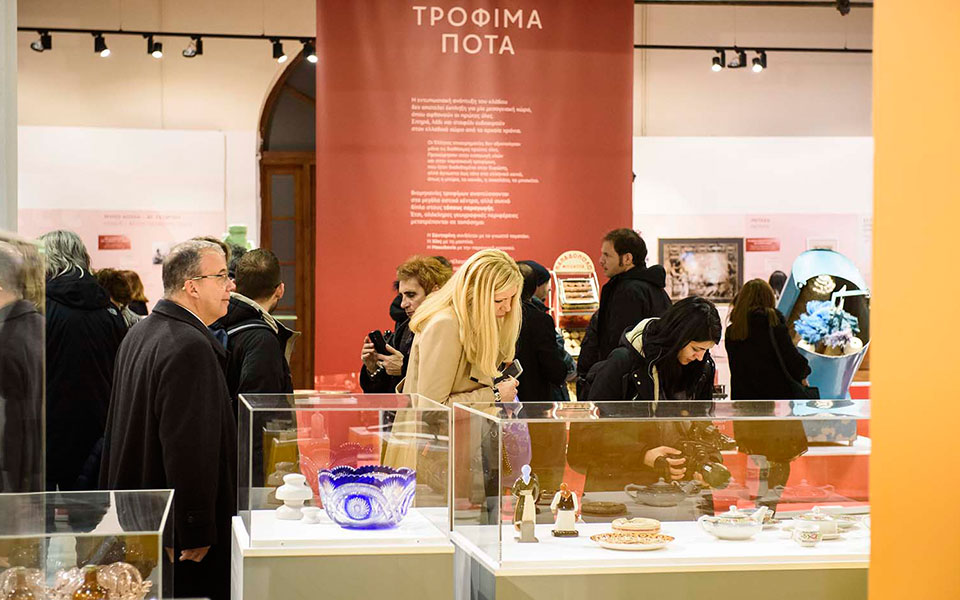A canning machine growls and whirs, churning out perfect tin cans despite its age; built in 1958, it was once part of the D. Nomikos tomato processing plant on Santorini.
Over the din, an elderly woman visitor who hails from the island reminisces out loud about the importance of the factory: “In the winter on Santorini you couldn’t find fresh products, so there would be tomato paste in every home from the 1960s until the early 1980s. In the winter these characteristic red cans were in the kitchen, and in the summer they were in the garden; we would grow basil in them.”
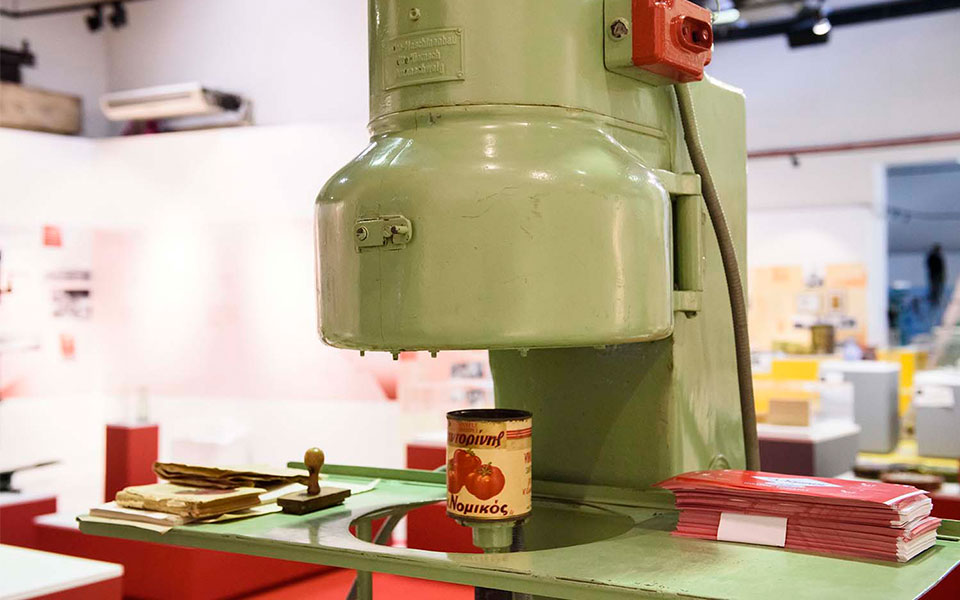
Exactly 160 years since the foundation of the gasworks of Athens, today the same site – now a major cultural venue and museum run by the Municipality of Athens under the name Technopolis – is hosting the exhibition “160 Years of Made in Greece: Industry, Innovation, Novelty”.
The journey through the world of Greece’s domestic industry during the period 1860-1970 is divided into eight sections (metals, chemicals, construction materials, energy, food and drink, textiles and garments, tobacco, furniture) and includes 800 exhibits, many of which can be interacted with. Each one attracts a hive of people reveling in a sense of sweet nostalgia.
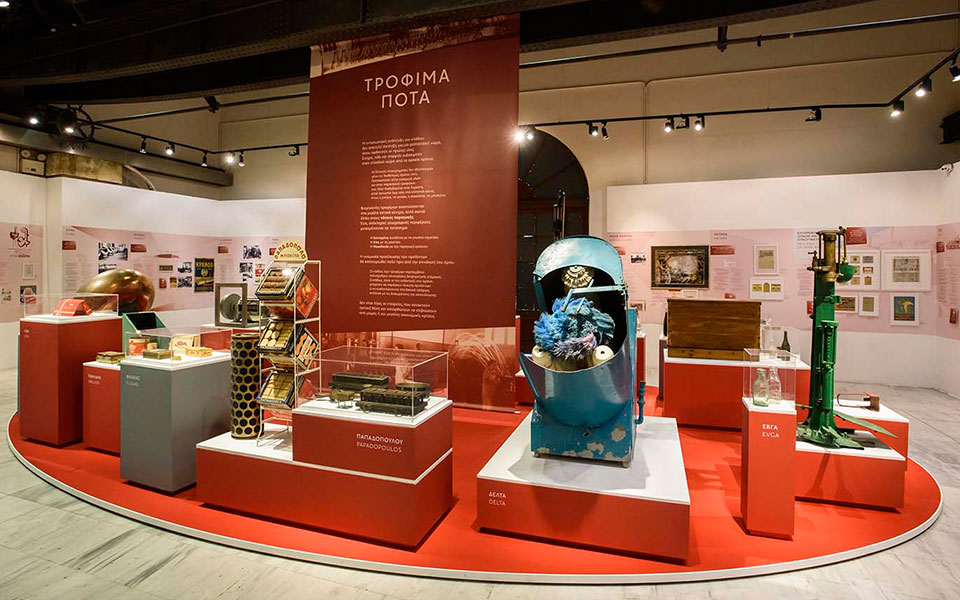
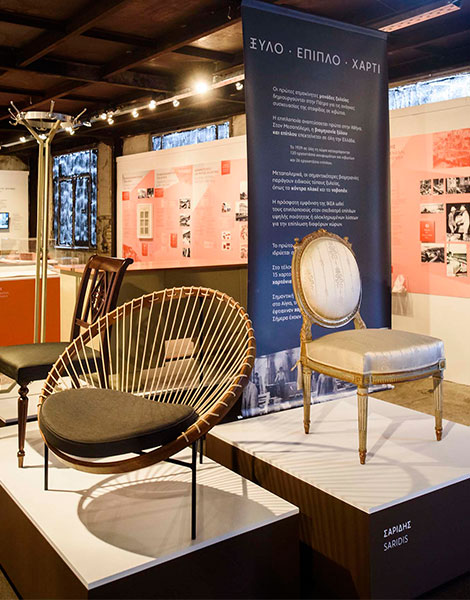
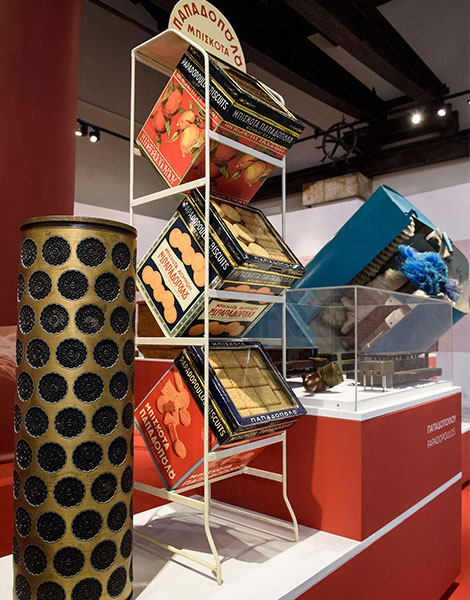
To this day, there isn’t a corner of Greece where you won’t find the famous Papadopoulos brand cookies. At Technopolis you will see the wide cylinder that was once used to imprint the characteristic company seal onto each of the round, chocolate cookies that Greeks have been enjoying with their coffee since 1922. You can even turn it by hand to imprint the seal on plasticine. Next to it, the old metal tins the company used to package their products are on display, each one featuring miniature works of art in the form of their graphic design.
These tins were once a common feature of every home in Greece as once the cookies were finished, the tins would routinely be used to store small items. Almost every child in Greece has, at one time or another, seen such a tin on a shelf in their grandmothers’ home and opened it with glee, only to be met with the disappointing sight of buttons, needles and thread.
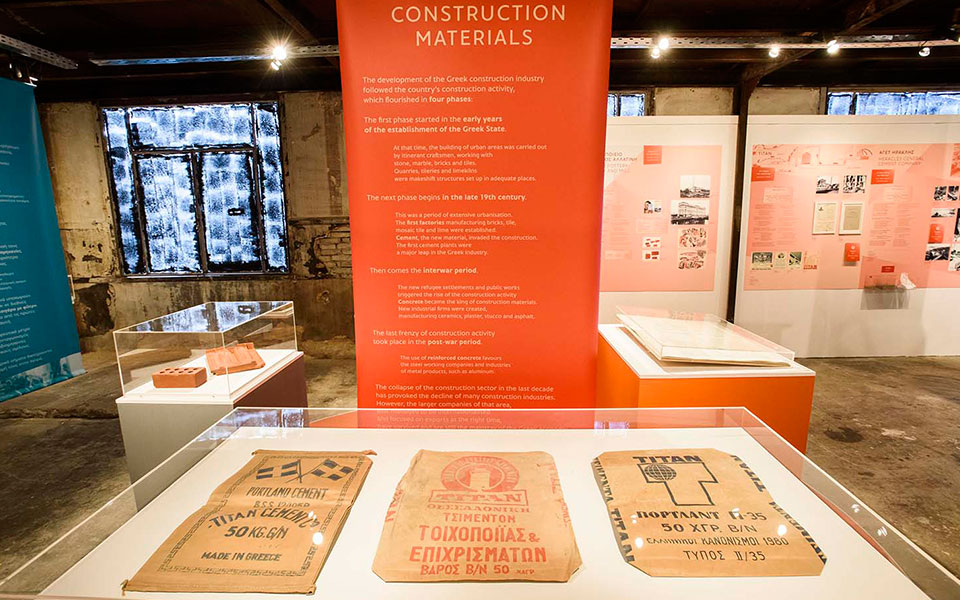
Among the most charming exhibits in the exhibition are those dedicated to old adverts. You will see screens playing rare TV ads featuring happy people showering and chubby, red-cheeked babies eating chocolates. Many of the slogans from print ads run in magazines are familiar to most to this day.
One of the most important advertising companies of the time, ADEL, used to hire prominent writers to come up with their creative ads, such as M. Karagatsis and Menelaos Lountemis. “Wanted: little old ladies, 20 years old,” one poster writes in block capitals, explaining underneath that IZOLA, a manufacturer of electrical goods was offering to replace old devices with new models.
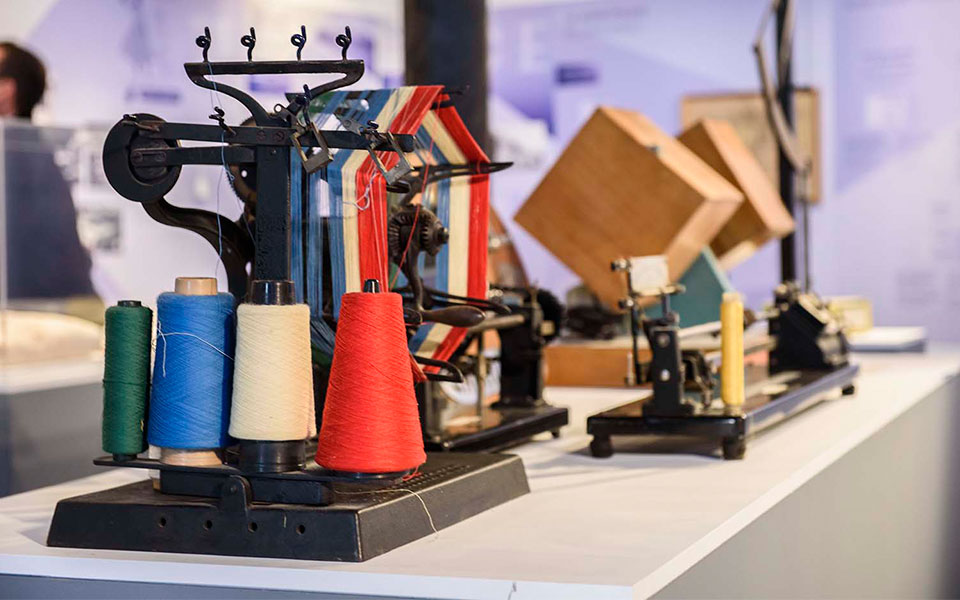
Another popular stop is the corner dedicated to the soap manufacturer Papoutsanis, which was founded in Lesvos in 1870 and continues to operate today. One visitor in his 30s, smelling pieces of soap that are one display tells me, “It brings everything to life: the outdoor bathroom at my grandmother’s house in Serres, the small wooden door, the mirror held up against the wall by a nail, a typical sink and next to it a thick slab of Papoutsanis soap.”
Every exhibit makes one recall or imagine a time in the past – such as the glass milk bottles once used to deliver fresh milk daily door to door. Further down you can see the giant machine with a brush that would wash the returned bottles so that they could be used again. “I went to open the heavy door of the Eskimo fridge and felt the exact same discomfort I had as a kid when I would pull the thin metal handle and it would cut into my hand,” one visitor says as she examines old electrical goods.
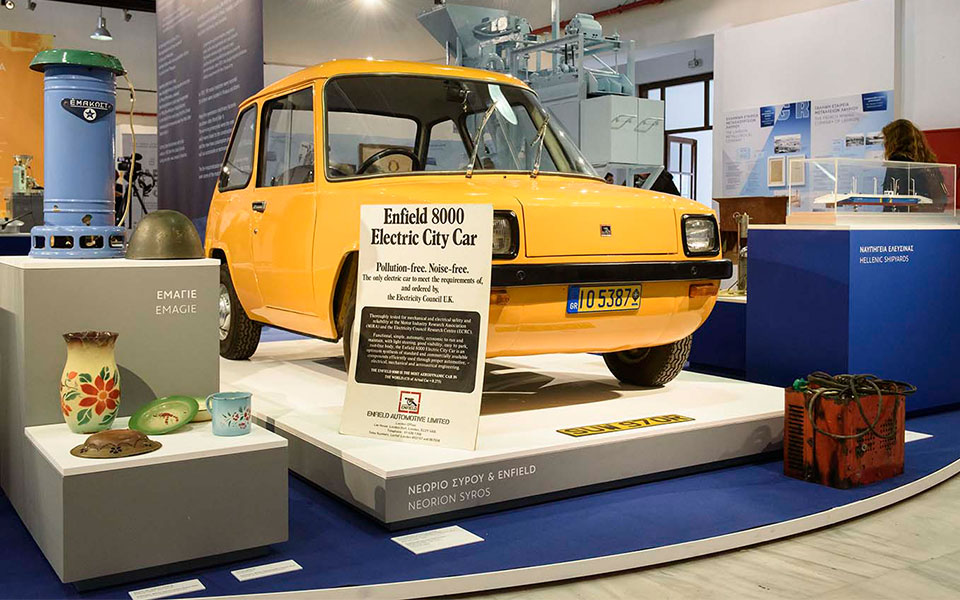
In the furniture section, you will learn the story of Greece’s most famous furniture manufacturer – that of the house Saridis, whose creations have adorned the living rooms of Greek aristocrats as well as major foreign stars such as Madonna and Versace.
You will also stop to photograph many old, iconic items – soft drinks cans, cigarette packets, old medication packages and other famous products created by companies that made up the cogs of the country’s industry. You can also trace the modern history of Greece and the major events that impacted the world of industry through the clear and interactive ‘Line of History’.
As you leave, you may also recognize the small Enfield electric car with its broad, curved windscreen that once could be seen on the streets of England in the 1970s.
All of them were manufactured on the island of Syros.

